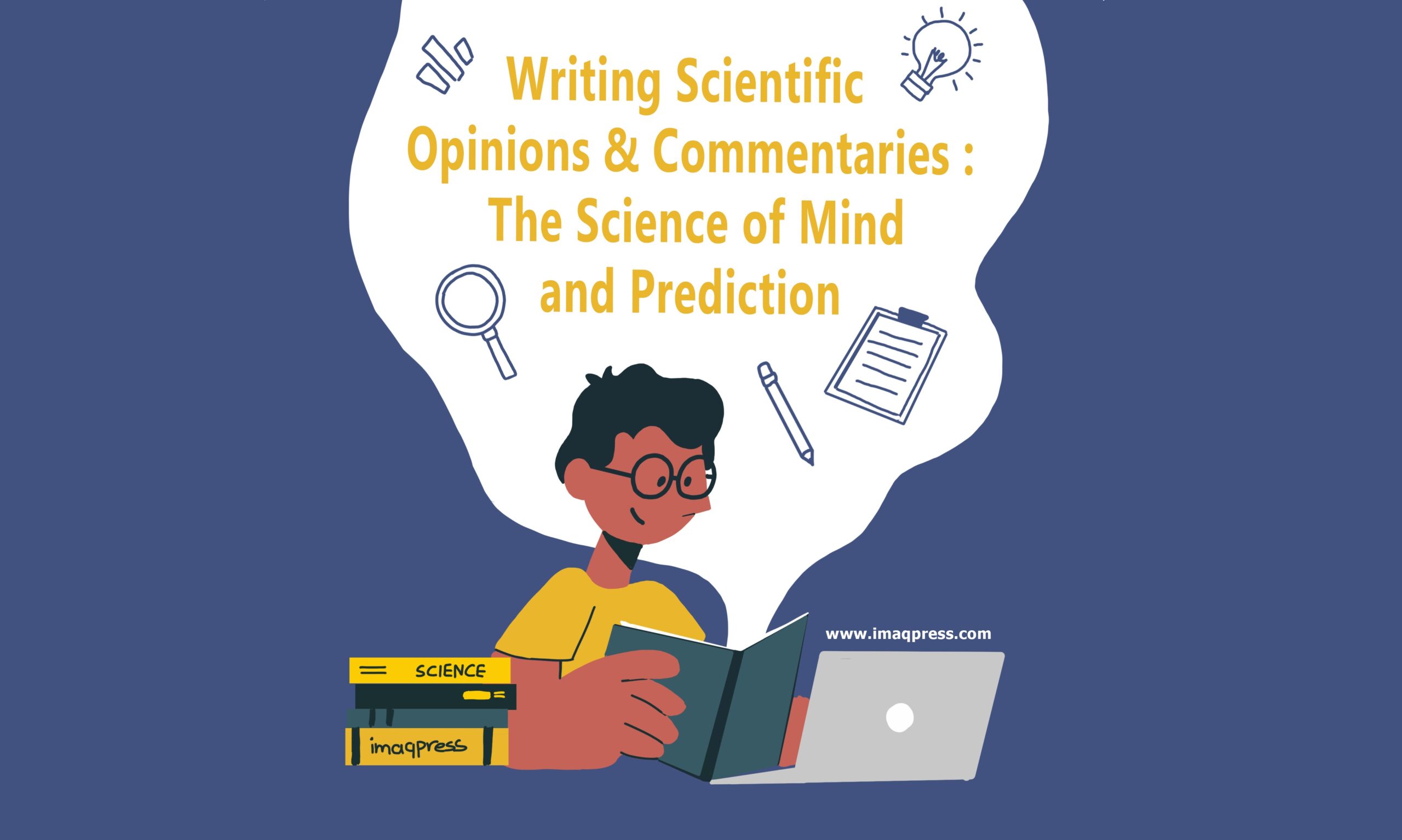
Scientific Opinions & Commentaries: The Science of Mind and Prediction
- Post by: Editor
- March 10, 2022
- Comments off
Scientific Opinions & Commentaries are extracts of decades of analysing the scientific conclusions and can help young researchers defining their scientific targets.
Science is the knowledge derived from a research methodology based on hypothesis and assumptions. These hypothesis or assumptions are based on some observations but a scientist or researcher having expertise in a field and history of doing research can present valuable opinions and commentaries.
What are Opinions & Commentaries?
Scientists and researchers are walking libraries and they are having knowledge of thousands of research work happened around the world in a specific sub-discipline. They are well aware about the mechanistic approaches being used in the research and their possible outcomes.
After studying the thousands of research works on a specific topic, a researcher can give wonderful opinions which are useful for science managers, publishers and emerging young researchers who are ready to take a deep dive in the ocean of scientific explorations.
Scientific opinions & commentaries are the conclusive remarks of senior professors, eminent scientists and team leaders predicting the future or future-way of the research.
Difference between Opinions or Commentaries:
Scientific opinions are valuable thoughts based on the thousands of research works happened whereas scientific commentaries are valuable additions or explanations of an ongoing research topic to improve the methodologies and strategies for better outcomes.
Scientific opinions and commentaries are non-peer reviewed scientific papers having potential of receiving thousands of citations and are valuable research assets for young or early-career researchers.
Who Should Write Scientific Opinions & Commentaries:
Scientific opinions or commentaries are written by the well-known researchers, eminent scientists or experienced professors. Scientific opinions could be about research methodologies, science policy, institutional behaviour or the dealings of early-career researchers.
Young researchers can also write scientific opinions or commentaries describing the challenges, issues and barriers being faced in their research careers.
Young research can also write scientific opinions or commentaries as narrations of their senior professors, eminent scientists and well known researchers.
Main Components of Scientific Opinions or Commentaries:
Scientific opinions or commentaries should have following important segments having;
- Proper explanation of research history
- Proper usage of scientific terminologies
- Well-presentation of issues and challenges (when written by early-career researchers)
- Predictions or outcomes of applied research methodologies or strategies
- An understandable conclusion.
Conclusion:
Scientific opinions or commentaries are valuable research assets written by experienced or early-career researchers on different aspects of scientific research.
These are kind of peripheral part of scientific research and publication process to raise the issues, challenges, forecasting the research outcomes or predicting the output of several methodologies.
As a kind of non-peer reviewed publications, scientific opinions and commentaries if are well-written and creative in concept, are subject of fast-track publications by scholarly journals.

